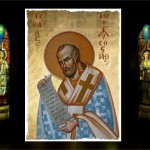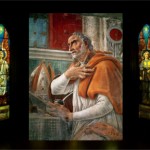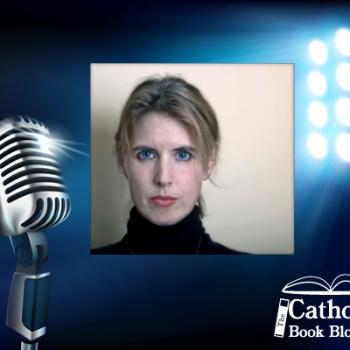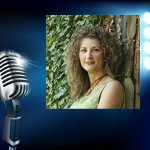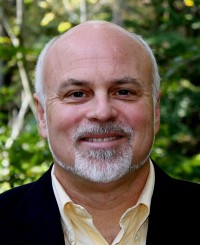 PETE: What drew you to writing about Mother Teresa in your book The Love that Made Mother Teresa?
PETE: What drew you to writing about Mother Teresa in your book The Love that Made Mother Teresa?
DAVID SCOTT: To be honest, Mother Teresa never impressed me that much. I never paid much attention to her. If I did, I dismissed her as a kind a pious do-gooder.
Like a lot of people, I “read” my way back to the Church. And the figure who brought me back was Dorothy Day. She had that radical conversion story, that deep interest in culture and this powerful vision of how to live our Catholic faith in resistance to all the powers and principalities and ideologies of the modern world. That was true religion to me, that’s what I was looking for.
By comparison, Mother Teresa’s witness seemed kind of small. She helped dying people, she fed hungry people, criticized abortion. Seemed pretty unchallenging, unimaginative, “Band-Aid on the cancer” kind of stuff, to me.
Then when she died, I started thinking about her more. Did some reading about her, and started reading some of her own writings. Of course, I realized how wrong I was about her — how deep her experience of Christ was, how radical her vision was. She was mystic in the slums and a prophet for our times. That’s when the idea for the book came about.
PETE: In the early chapters of the book you make a statement that God sends people when and where they are needed most. Can you elaborate on that for those who have not read your book yet?
DAVID SCOTT: God sends us saints. That’s the idea I’m working with in the book. God sends us the saints we need to make sense of the times we’re living in. The saints help us see things with God’s eyes.
Most saints are “local” — they “speak” to their own time and place. But some saints are universal. They have message for the Church in all times and places. Francis of Assisi, Thèrése of Lisieux. In the book, I’m making the case that Mother Teresa is one of those universal saints, the first saint for the “global village.” And in many ways, I think we can see her whole life as a kind of “divine commentary” on the 20th century.
PETE: You include many little known stories about Mother in the book. In doing your research, and discovering these stories what most impressed you about Mother Teresa?
DAVID SCOTT: Two things to say on that, maybe.
First, to use the language of Pope Francis, Mother Teresa was a saint of the “peripheries.” Not just because she reached out to people on the margins of society, people we have forgotten or thrown away. But she also understood what the Pope calls “the existential peripheries” — all the places of the human heart that are marked out by sin, addiction, loneliness, injustice, indifference.
Second, Mother Teresa believed that love matters, even in the littlest things. When we love we increase the sum total of love in the world. When we are indifferent, the world’s indifference grows. “Do little things with great love,” she would say. And she believed that these little things — a smile, a kindness, a small act of compassion or forgiveness — these things could change the world. And of course, the opposite is true. The world dies a little, gets a little meaner, a little lonelier, every time we fail to love, every time we fail to take responsibility for our brothers and sisters. This is what she was trying to teach us.
PETE: Mother Teresa suffered an extended dark night that we are only now beginning to understand how lonely it was. Despite her own feeling of isolation from God she was a beacon of light in our times. What are your thoughts on this?
DAVID SCOTT: Her “dark night” was one of the revelations of my research. It came out in her letters to her spiritual directors, which she had asked to be destroyed.
Basically, what we discover is that in 1946 she had a series of visions that led her to quit her comfortable job as a teacher of rich kids and go serve the poor. The visions were powerful. So powerful, she felt she couldn’t refuse. So she gave everything up and founded the Missionaries of Charity.
Then, for the next 50 years, she never heard another thing from God. It was like radio silence. According to her letters, her prayer life, her interior life was an agony. She felt abandoned by God. She wondered if God existed. Or if God “hated” her and was trying to “break” her.
What’s amazing is that we never knew any of this — and we wouldn’t have, if her letters weren’t published after her death. Her whole life, her public face was always joyful and smiling. In private, with her sisters and her friends, the same thing. Nobody ever knew she was suffering.
What I try to show in the book, is obviously, just my interpretation. But I think her “dark night” is one of the ways that God made her share in the sufferings of the 20th century — all the darkness of world events like the Holocaust, all the betrayals, the massacres of the innocents, souls suffering on so many different levels. It was a century of death, people at each other’s throats over race and religion and just plain evil.
The question of the 20th century and our world today is the same — where is God? Has he turned his face way? How do we live in the face of so much evil and injustice? You might say the world is living in its own collective dark night of the soul. So Mother Teresa was sent to show us how to walk in this darkness, how to live “by faith and not by sight,” as St. Paul used to say. That’s my interpretation, anyway.
PETE: Time for my signature ending question. This is a blog about books. What is currently on your bookshelf to read?
DAVID SCOTT: That’s why I like your blog, Pete! We can’t live without books.
Anyway, I just finally got around to reading What Happened to Sophie Wilder. I know everybody’s already read it, but I’m slow. I found it disturbing, powerful, transcendent. Made me feel more alive, more human. Hard to describe, really, without sounding lame. Best novel I’ve read in a long time and profoundly “Catholic” although not in any kind of dogmatic way. Sophie is this character who gets under your skin. And the author, Beha, is doing some fascinating things with language and narrative and time and space. I need to spend more time thinking about this book and praying about it.
I had just read The Goldfinch to see what all the fuss was about with that — Pulitzer Prize and all. And I found that one disturbing in a different way. The characters were like cartoons, the plot was crazy, unbelievable. It’s like 800 pages of my life I’m never going to get back.
So right now, after reading Sophie Wilder, it made me want to go back and re-read Merton’s Seven Storey Mountain and dig back into Graham Greene. So those are on the shelf — Heart of the Matter and A Burnt Out Case seemed like good follow-ups, along with some of Greene’s memoirs and letters.
I’ve also been reading a lot of poetry, right now I’m looking at the shelf: Sebastian Barker, Guarding the Border;Les Murray, Learning Human; Marie Ponsot, Springing; Regina Derieva, Alien Matter; Tad Rozewicz, Sobbing Superpower. I just ordered my friend, Mike Aquilina’s new selected poems, Terms and Conditions. So all that should keep me contemplating and praying and living for a while!
___________________________________________________________________________________________________________________

